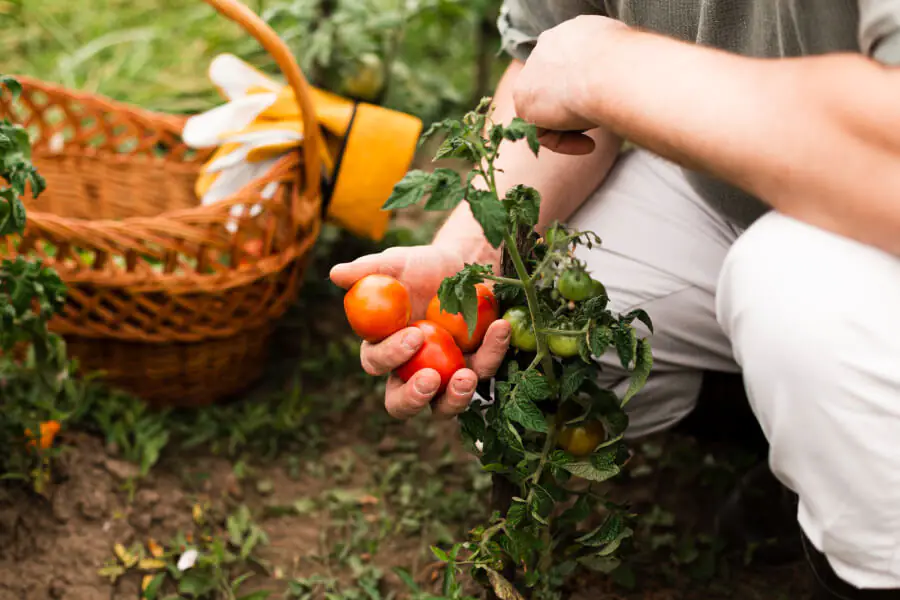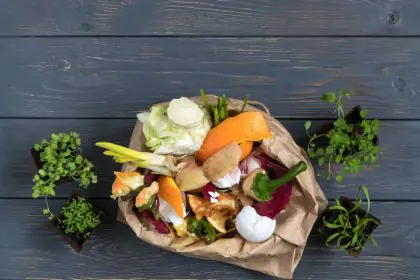Gardening is not just a hobby; it’s a way to connect with nature, promote biodiversity, and enjoy the freshest produce possible.
If you live in a Mediterranean climate, with its warm, dry summers and mild, wet winters, you’re in an ideal location for cultivating a sustainable organic garden.
Learn how to create and maintain a a sustainable garden that respects the environment and supports local ecosystems.
The Basics of Sustainable Organic Gardening
What is Sustainable Organic Gardening?
A sustainable organic garden involves cultivating plants without synthetic fertilizers, pesticides, or herbicides. Instead, it focuses on building healthy soil, promoting biodiversity, and managing resources responsibly.
The goal is to create a balanced ecosystem that thrives naturally and supports local wildlife.
Benefits of Sustainable Organic Gardening
- Healthier Plants: A sustainable garden leads to stronger, more resilient plants that are less susceptible to pests and diseases.
- Environmental Protection: By avoiding harmful chemicals, you help protect soil health, water quality, and local ecosystems.
- Biodiversity: A sustainable garden supports a variety of plants and wildlife, creating a more balanced environment.
- Sustainable Food Sources: Growing your own organic fruits and vegetables reduces your carbon footprint and provides you with fresh, nutritious food.
Key Principles to Follow
To create a successful sustainable organic garden, you should adhere to a few fundamental principles:
- Building Healthy Soil: Healthy soil is the foundation of any successful sustainable garden. Use compost and organic matter to enrich the soil and improve its structure.
- Promoting Biodiversity: Plant a variety of species to attract beneficial insects and create a balanced ecosystem.
- Responsible Resource Management: Use resources wisely, conserving water and minimizing waste.
- Avoiding Harmful Chemicals: Rely on natural pest control methods and organic fertilizers to maintain a healthy garden.
Setting Up Your Sustainable Organic Garden
Choosing a Suitable Location
Selecting a spot in your yard that receives plenty of sunlight at least six hours a day is ideal.
Consider the proximity to water sources for easy irrigation, ensuring your sustainable organic garden thrives even during dry spells.
Preparing the Soil
Before planting, prepare your soil by:
- Testing: Conduct a soil test to determine pH and nutrient levels. This will help you understand what amendments are needed for a sustainable organic garden.
- Amending: Add organic matter, like compost or well-rotted manure, to improve soil fertility and structure.
- Tilling: Gently till the soil to a depth of about 12 inches, mixing in organic matter to create a healthy foundation for your sustainable organic garden.
Planning Your Garden Layout
Design your sustainable organic garden with a layout that maximizes space and sunlight.
Consider using raised beds, which provide better drainage and soil quality. Create pathways for easy access to plants.
Planting and Maintaining Your Organic Garden
Selecting the Right Plants
Choose plants that are well-suited to your Mediterranean climate for a successful sustainable organic garden. Consider drought-tolerant varieties, such as:
- Tomatoes: A staple in Mediterranean cooking, tomatoes thrive in warm conditions.
- Herbs: Basil, rosemary, and thyme not only improve your meals but also attract beneficial insects to your sustainable organic garden.
- Peppers: These heat-loving plants add color and flavor to your garden.
Watering and Irrigation Techniques
Efficient watering is crucial in a Mediterranean climate for your sustainable organic garden. Consider the following techniques:
- Drip Irrigation: This method delivers water directly to the plant roots, reducing waste and evaporation.
- Mulching: Apply organic mulch to retain moisture and suppress weeds, helping your sustainable organic garden flourish.
Natural Pest Control Methods
Instead of reaching for chemical pesticides, try these natural alternatives in your sustainable organic garden:
- Neem Oil: This organic pesticide disrupts the life cycle of many common pests.
- Insecticidal Soap: Effective against soft-bodied insects like aphids, it’s safe for most plants in your sustainable organic garden.
Companion Planting Strategies
Certain plants thrive when grown together. For instance, planting marigolds with tomatoes can deter pests. Research companion planting combinations that benefit your sustainable organic garden.
Maintaining Sustainability in Your Garden
Regular Soil Testing and Amendment
Conduct soil tests at least once a year to monitor nutrient levels in your sustainable organic garden.
Amend the soil with organic matter as needed to maintain its health. Regular testing allows you to adapt your practices to the changing needs of your soil.
Implementing Crop Rotation
Rotate your crops each season in your sustainable organic garden to prevent soil depletion and reduce pest problems.
This practice improves soil fertility and disrupts pest cycles. For example, follow nitrogen-fixing legumes with heavy feeders like tomatoes and squash.
Harvesting and Seed Saving
Harvest your crops at their peak for the best flavor and nutrition. Consider saving seeds from your best plants to continue your sustainable organic garden for future seasons.
Properly dried and stored seeds can remain viable for several years, allowing you to maintain your preferred varieties.
Encouraging Wildlife and Beneficial Insects
Create habitats for beneficial insects by adding native plants and maintaining a diverse garden.
Birds and insects will help control pests and pollinate your plants, improving your sustainable organic garden. Additionally, consider installing birdhouses or bee hotels to encourage more wildlife.
Practicing Water Conservation
Implement water-saving techniques, such as rainwater harvesting, to ensure your sustainable organic garden remains sustainable even in dry spells.
Collect rainwater in barrels and use it to irrigate your garden, reducing reliance on municipal water sources.
Conclusion
Growing a sustainable organic garden in a Mediterranean climate is not only rewarding but also essential for promoting environmental health.
By following the principles outlined in this guide, you can create a vibrant, eco-friendly garden that provides fresh produce and supports local ecosystems.
Whether you’re a seasoned gardener or just starting out, embracing sustainable practices will improve your gardening experience and contribute to a healthier planet.
FAQs
Which is the best example of a sustainable practice that might be used in a garden?
Using organic compost and practicing crop rotation are excellent examples of sustainable practices in gardening.
What plants are best for a sustainable garden?
Drought-resistant plants like lavender, rosemary, and Mediterranean herbs are well-suited for sustainable organic gardens.
How do I make organic matter for my garden?
You can create organic matter by composting kitchen scraps, and yard waste, and using well-rotted manure.
How to make your garden greener?
Add more native plants, practice water conservation, and avoid chemical fertilizers and pesticides to make your sustainable organic garden greener.







